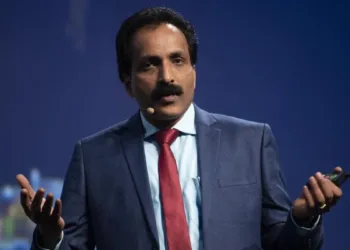In a landmark case that has sparked nationwide debate about alimony expectations, the Supreme Court strongly rebuked an MBA graduate who demanded ₹12 crore, a BMW, and a luxury flat in Mumbai as alimony after just 18 months of marriage. Chief Justice BR Gavai’s pointed question, “Why don’t you earn?” has resonated across legal and social circles.
Table of Contents
The Extravagant Alimony Demand
The woman approached the Supreme Court seeking permanent maintenance, including a flat in Mumbai free of cost and ₹12 crore as a one-time settlement. Her demands also included a high-end BMW car, making this one of the most expensive alimony claims in recent Indian legal history.
The case was heard by a bench comprising Chief Justice BR Gavai and Justices K Vinod Chandran and NV Anjaria, who expressed astonishment at the scale of demands relative to the marriage duration.

Supreme Court’s Sharp Response
“It lasted just 18 months. And you are seeking a crore a month?” CJI Gavai remarked during the hearing, highlighting the disproportionate nature of the financial expectations.
When the court learned about her educational qualifications, the tone became even more direct. “You are employable in places like Bengaluru and Hyderabad. Why not work?” CJI Gavai asked, emphasizing the importance of self-reliance for educated individuals.
Case Details and Background
| Aspect | Details |
|---|---|
| Marriage Duration | 18 months |
| Woman’s Qualification | MBA graduate, IT sector experience |
| Alimony Demanded | ₹12 crore + Mumbai flat + BMW |
| Husband’s Defense | Claims of mental illness, sought annulment |
| Court’s Alternative | ₹4 crore or flat without conditions |
The Court’s Philosophical Stand
The Supreme Court’s response reflects a broader shift in judicial thinking about alimony and gender equality. “You are well educated. You should not be depending on handouts. You should earn and live with dignity,” CJI Gavai stated, emphasizing the dignity of work over dependency.
This stance aligns with contemporary views on women’s empowerment, where financial independence is considered more empowering than maintenance dependency, especially for educated women with earning capacity.
Legal Implications for Future Cases
Senior advocate Madhavi Divan, representing the husband, argued that “She is educated and capable of working,” adding that the financial demands were excessive and not legally justified. This argument successfully convinced the court to consider the woman’s earning potential rather than just her claims.
Precedent Setting Aspects
The case establishes several important precedents:
- Educational qualification matters in alimony determination
- Marriage duration is crucial for calculating reasonable maintenance
- Earning capacity takes precedence over lifestyle claims
- Self-reliance is preferred over dependency for capable individuals

The Reality Check Moment
The woman told the court her husband “called me schizophrenic,” asking whether she appeared unwell to them, attempting to counter claims about her mental health. However, the court focused on her demonstrated capabilities rather than disputed medical claims.
The bench’s decision to examine the husband’s income tax records showed their commitment to fact-based judgment rather than emotional appeals or extravagant demands.
Court’s Final Offer
After reviewing financial documents, the Supreme Court gave the woman two choices: either accept the flat with no legal conditions or take a lump sum payment of ₹4 crore. This represented a significant reduction from her original ₹12 crore demand.
Broader Social Commentary
This case highlights the evolving dynamics of marriage, divorce, and financial expectations in modern India. The court’s emphasis on self-reliance reflects changing social attitudes toward women’s roles and capabilities.
The judgment sends a clear message that education and employability are factors that courts will increasingly consider when determining alimony, moving away from traditional maintenance models toward empowerment-based solutions.
Impact on Indian Matrimonial Law
Legal experts suggest this ruling could influence future alimony cases, particularly involving educated women. The precedent emphasizes that courts will scrutinize both need and capability when determining maintenance amounts.
For more insights on legal developments and matrimonial law updates, follow our legal news coverage and Supreme Court case analysis.
The official Supreme Court website at sci.gov.in provides comprehensive information about ongoing cases and landmark judgments for those interested in detailed legal proceedings.
Stay informed about landmark legal cases and their societal impact through our comprehensive court coverage and analysis.
FAQs
Q: What was the final outcome of the ₹12 crore alimony case?
A: The Supreme Court reserved its order on July 21, 2025, after offering the woman two alternatives: either accept a flat with no legal conditions or take a lump sum payment of ₹4 crore. The court rejected her original demand of ₹12 crore, BMW, and Mumbai house, emphasizing that as an MBA graduate with IT experience, she should work and earn with dignity rather than depend on maintenance.
Q: How might this case affect future alimony decisions in India?
A: This case sets a significant precedent by establishing that educational qualifications, earning capacity, and marriage duration are crucial factors in alimony determination. Future cases involving educated, employable women may see courts emphasizing self-reliance over dependency, potentially leading to lower maintenance awards but encouraging financial independence and dignity through work
.








